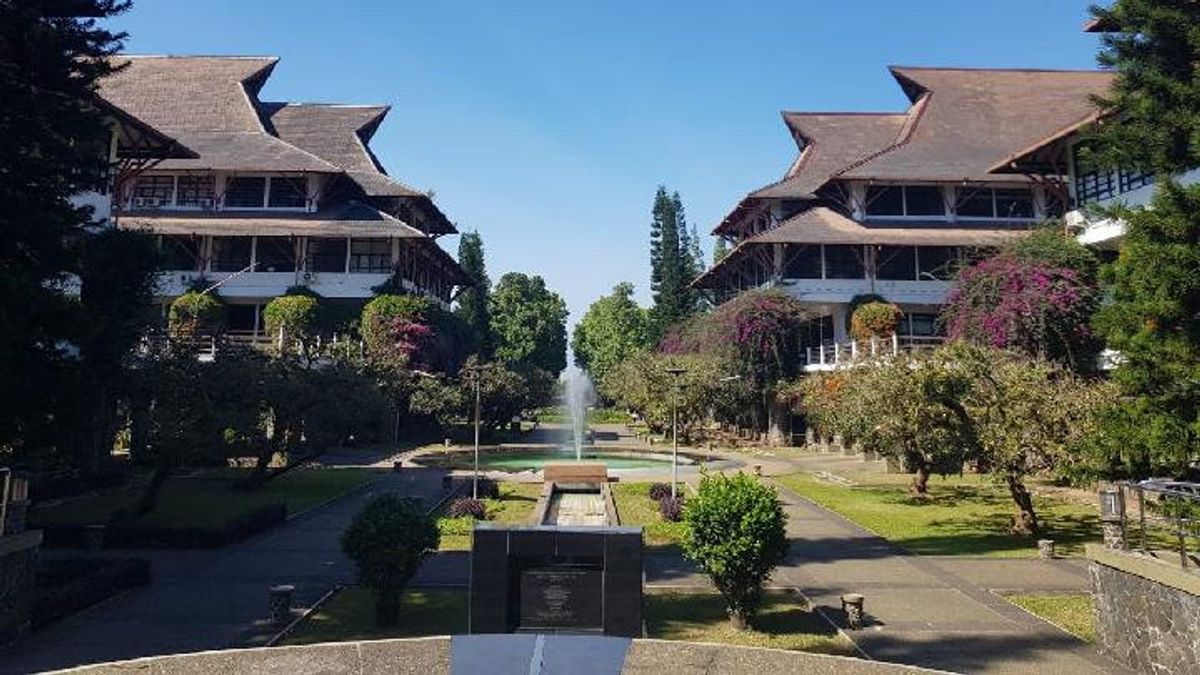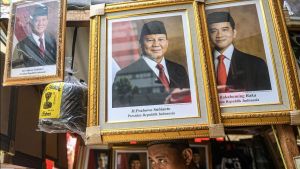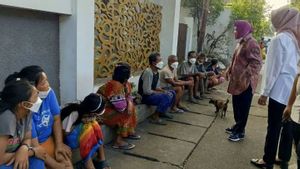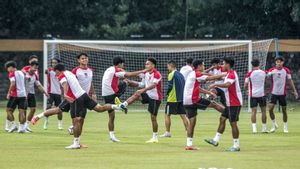JAKARTA The decision of the Bandung Institute of Technology (ITB) which requires scholarship recipients to reduce Single Lecture Money (UKT) to work part-time is increasingly clarifying the orientation of the campus which does lead to commercialization and liberalization of education.
One of Indonesia's best campuses, ITB, has returned to the spotlight after issuing a new policy that has drawn protests from students and the wider community. This time, a campus located in Bandung, West Java, requires half-time work for students who get scholarships for dry tuition fees or UKT.
The obligation of students who receive scholarships for single tuition fees or UKT to work part-time on campus is contained in the ITB Chancellor Regulation Number 316/ITl.NPER/2022 concerning ITB Student Affairs, precisely in Article 5 paragraph 4 c and d.
The polemic of this part-time work obligation began with the circulation of screenshots of electronic mail on social media on September 24, 2024. The letter contained an announcement from the ITB Education Directorate to recipient students and prospective recipients of UKT reductions.
"Students, all of you, ITB make policies for all ITB students who receive UKT scholarships, namely scholarships in the form of reducing UKT, are required to do part-time work for ITB," said the ITB campus call which was distributed via email.
This latest policy made ITB again in the spotlight. Moreover, previously, the same campus was also discussed because it gave online loan options to students who were in arrears in UKT.
But recently, the obligation of prospective students and scholarship recipients to work part-time was straightened out by the campus. ITB Head of Communication and Public Relations Bureau Naomi Haswanto emphasized that the offer to work part-time is not an obligation, but only an option so that if you don't participate, there won't be a problem. According to Naomi, the information that is spread to the student is incomplete, causing misperceptions.
"So what's wrong is that the misunderstanding is indeed an email that is blasted on students," he said.
He argued that the delivery of the electronic letter was carried out immediately because ITB was recording students who wanted to become assistants over the course of lectures and practicum this semester. In addition, according to Naomi, the target of the electronic letter should be addressed to certain students. Due to the wrong target, the electronic letter regarding the part-time work was withdrawn for repair.
"So we are not here to say 'non-obedient' but to be sent down for repairs, later students will be given an email again," he said.
Apart from Naomi's defense, the electronic mail that has already been circulating on social media has certainly brought the public back to highlight ITB. Ubaid Matraji, the National Coordinator of the Indonesian Education Monitoring Network (JPPI) for the policy, clarifies the orientation of the campus which does lead to commercialization and liberalization of education.
Departing from the case of part-time work obligations at ITB, the practice of commercialization in higher education was also enlivened by legalizing student slavery on campus. He also firmly explained the reasons for rejecting the mandatory part-time work requirements imposed on prospective and UKT relief scholarship recipients on ITB.
First, scholarships are the rights that students must obtain, especially for those with economic limitations. Scholarships are not a government or public campus generosity program, then students are required to take revenge by being willing to work part-time on campus.
This, according to Ubaid, is stated in the 1945 Constitution articles 31 and 34, which clearly require the government to provide education financing and also be responsible for the welfare of the community, especially among weak economies. Therefore, scholarships are the rights of students and constitutional obligations that must be fulfilled by the government.
"Second, state campuses, such as ITB, are an extension of government services in higher education. For this reason, the burden of campus financing should be borne by the state budget, not even borne by the community," said Ubaid in a statement received by VOI.
He added, with a fantastic education budget of IDR 665 trillion in 2024 and increasing to IDR 722 trillion in 2025, free lectures at PTN are very likely.
Corruption is becoming expensive because government investment in higher education matters is still very minimal, because it is expensive tuition fees. This is not only a stigma but it is true," said Ubaid.
Returning to the ITB news requires UKT relief scholarship recipients to work part-time, said Ubaid, this is like modern slavery that must be watched out for. Especially, according to his observations, this is not the first time a case has appeared in the campus environment.
He gave an example of the Merdeka Campus program, in recent years it has sparked protests because there are cases of alleged human trafficking practices under the guise of interns, both at home and abroad.
"So working part-time on campus is not the obligation of scholarship recipient students, their job is to study on campus, not work. In fact, this scholarship award is a constitutional obligation that must be fulfilled by the government (state campus manager) to students," said Ubaid.
Similarly, labor law lecturer Gadjah Mada University (UGM) Nabiyla Risfa Izzati said there were indications of exploitation in the part-time work policy required by ITB to scholarship recipients.
Nabiyla said that the relationship between the giver and the recipient of the scholarship with the relationship between the worker and the employer is two very different things. Because, employment is a very specific relationship.
SEE ALSO:
'Does it mean that ITB, in this case, wants to say that the scholarships they give students are wages for the work they do?' said Nabiyla, citing Tempo.
Because in the context of employment, continued Nabiyla, employers are required to fulfill workers' rights, from wages to employment social security. In addition, according to him, students who work part-time at universities are common. However, the job aims to earn additional income.
"In universities, it really is also known that there are students who are employed as part-time workers in various forms. And that is usually not associated with scholarships at all," he said.
Nabiyla also said that if ITB does not provide wages for the part-time work, then there are indications of exploitation. So it is clear that there are indications of exploitation, "said Nabiyla ending.
The English, Chinese, Japanese, Arabic, and French versions are automatically generated by the AI. So there may still be inaccuracies in translating, please always see Indonesian as our main language. (system supported by DigitalSiber.id)














